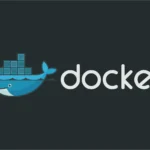What is Docker?
Docker is an open-source platform designed to automate the deployment of applications inside lightweight, portable containers. These containers encapsulate an application and its dependencies, ensuring that it runs consistently across different computing environments. The concept of containerization offered by Docker is fundamentally different from traditional virtual machines (VMs) in several key aspects.
Unlike VMs, which require a complete operating system to function, Docker containers share the host system’s operating system kernel. This shared usage results in significantly reduced overhead, allowing for faster startup times and better resource utilization. Docker containers are therefore more efficient and lightweight compared to VMs, which are often more resource-intensive due to their need for separate operating system installations.
One of the primary benefits of using Docker is the consistency it provides across various stages of application development. By packaging an application and its dependencies into a single container, developers can be confident that the application will behave the same way on a developer’s local machine, a test server, and in production. This consistency minimizes the “it works on my machine” problem, facilitating smoother transitions through the development pipeline.
Additionally, Docker enhances resource efficiency by allowing multiple containers to run on a single host machine without the need for multiple operating systems. This leads to more efficient use of hardware resources and can result in cost savings, particularly when deploying applications at scale. Furthermore, Docker’s containerization approach simplifies the process of scaling applications up or down based on demand, providing greater flexibility and responsiveness in dynamic environments.
In summary, Docker’s containerization technology offers a modern, efficient, and consistent approach to application deployment. By understanding the basics of Docker, developers can leverage its advantages to improve the development lifecycle, from coding to deployment, ultimately leading to more reliable and resource-efficient applications.
What is DevOps?
DevOps is a transformative approach that integrates software development (Dev) and IT operations (Ops) to enhance the efficiency and quality of software delivery. It aims to shorten the systems development life cycle while delivering continuous updates, improvements, and high-quality software. The core principles of DevOps revolve around collaboration, automation, continuous integration, and continuous deployment.
At its essence, DevOps fosters a collaborative culture where developers and operations teams work closely together throughout the software development process. This collaboration helps in breaking down the traditional silos that often exist between these teams, enabling them to share responsibilities and feedback effectively. By promoting open communication and shared goals, DevOps ensures that everyone involved in the software delivery pipeline is aligned and working towards a common objective.
Automation is another fundamental principle of DevOps. By automating repetitive and manual tasks, organizations can reduce errors, increase speed, and improve the overall efficiency of their software delivery pipelines. Automation tools can be used for various stages of the development cycle, such as code testing, deployment, and monitoring, allowing teams to focus on more strategic tasks that add value to the business.
Continuous integration (CI) and continuous deployment (CD) are pivotal practices within DevOps. CI involves the frequent merging of code changes into a central repository, followed by automated testing to detect and address issues early in the development process. CD extends this concept by automating the deployment of code changes to production environments, ensuring that new features and bug fixes are delivered to users rapidly and reliably. Together, CI and CD enable organizations to release software updates more frequently and with greater confidence.
Adopting DevOps requires a significant cultural shift within organizations. It demands a mindset that embraces change, innovation, and continuous improvement. Teams must be willing to experiment, learn from failures, and iterate quickly. Leadership support and a commitment to fostering a DevOps culture are crucial for the successful implementation of DevOps practices.
How Docker Integrates with DevOps
In the realm of software development, Docker has emerged as a pivotal tool that seamlessly integrates with DevOps practices, offering a consistent and scalable environment for application development and deployment. By encapsulating applications within containers, Docker ensures that software performs uniformly across various environments. This is particularly beneficial in DevOps, where maintaining consistency across development, testing, and production stages is crucial.
During the development phase, Docker allows developers to create isolated environments that mirror production settings. This isolation helps in pinpointing and resolving issues early in the development cycle, thereby reducing the “it works on my machine” problem. Developers can share Docker images with their teams, ensuring that everyone works with the same setup, which streamlines the collaboration process.
As the application progresses to the testing stage, Docker’s reproducible environments become invaluable. Continuous Integration (CI) tools like Jenkins or GitLab CI can utilize Docker to spin up containers for running automated tests. This ensures that the tests are executed in an environment identical to production, leading to more reliable test results. Moreover, Docker’s lightweight nature allows for running multiple containers concurrently, speeding up the testing process.
In the deployment phase, Docker’s integration with Continuous Deployment (CD) pipelines facilitates seamless application rollout. Tools such as Kubernetes, which orchestrate containerized applications, work hand-in-hand with Docker to manage container deployment, scaling, and operations. Docker containers can be updated with new application versions and rolled out without downtime, thereby ensuring continuous delivery of software updates to end-users.
Monitoring and maintaining applications is a critical aspect of the DevOps lifecycle, and Docker aids in this through its compatibility with monitoring tools like Prometheus and Grafana. These tools can be configured to monitor Docker container metrics, providing insights into application performance and resource utilization. This enables teams to proactively manage application health and swiftly address any issues that arise.
Real-world use cases of Docker in DevOps are abundant. For instance, companies like Spotify and PayPal utilize Docker to enhance their DevOps workflows, achieving faster deployment cycles and improved operational efficiency. By leveraging Docker alongside DevOps practices, organizations can significantly optimize their software delivery processes, leading to more reliable and scalable applications.
Getting Started with Docker and DevOps
For beginners eager to dive into Docker and DevOps, it is crucial to start with a clear understanding of the essential tools and technologies that will facilitate a seamless development and deployment process. A foundational tool in the Docker ecosystem is Docker Compose, which allows you to define and run multi-container Docker applications. With Docker Compose, you can manage complex applications by specifying services, networks, and volumes in a single YAML file.
Another indispensable technology is Kubernetes, an open-source container orchestration platform that automates the deployment, scaling, and management of containerized applications. Kubernetes is particularly valuable for managing large-scale applications and environments, ensuring high availability and efficient resource utilization.
In the context of continuous integration and continuous deployment (CI/CD), Jenkins stands out as a prominent automation server that enables the automation of various stages of your software delivery pipeline. By integrating Jenkins with Docker, you can create a robust CI/CD pipeline that builds, tests, and deploys your applications seamlessly.
Version control is another critical aspect of DevOps, and Git is the go-to tool for managing code repositories. By using Git, teams can collaborate effectively, track changes, and maintain a history of their codebase. Integrating Git with other tools in your DevOps workflow ensures a streamlined and efficient development process.
Setting up a local development environment is the first step towards a successful Docker and DevOps journey. Start by installing Docker on your local machine and familiarizing yourself with basic Docker commands. Create Dockerfiles to define the environment in which your applications will run, specifying dependencies and configurations. This practice not only ensures consistency across different environments but also simplifies the deployment process.
To enhance productivity and efficiency, automate repetitive tasks and workflows. Utilize tools like Docker Compose and Jenkins to automate the building, testing, and deployment of your applications. Implementing these best practices will help you achieve a more streamlined and efficient development cycle, ultimately leading to faster and more reliable software delivery.



